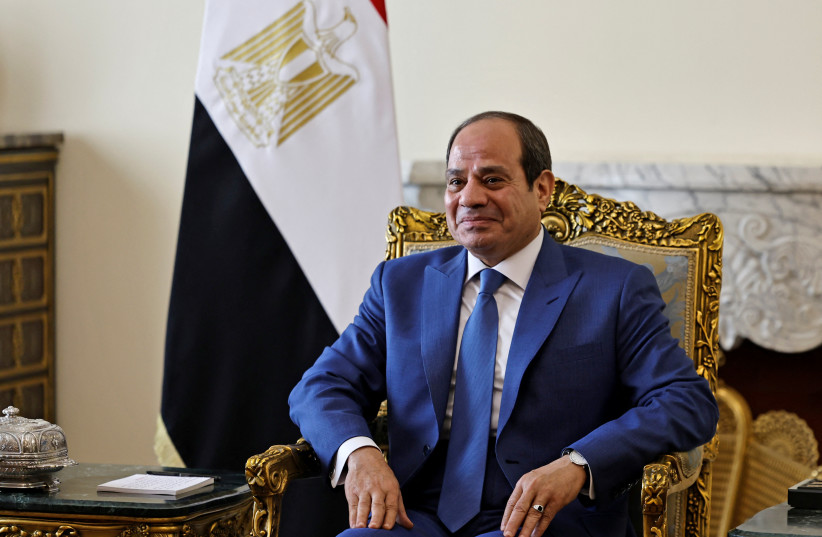Egypt announced on Tuesday that it will hold a presidential election on December 10, with President Abdel Fattah al-Sisi having been in power since 2013.
Sisi is likely to continue to remain in power, and the election does not come entirely as a surprise. In the last elections in 2014 and 2018, Sisi received around 97% of the vote in both.
A career military officer, Sisi came to power after the country suffered a chaotic transition during the Arab Spring protests in 2011 and the brief election and rule of the Muslim Brotherhood in 2012. He is expected to formally announce that he is running soon.
At 68, he is a key regional leader, with Egypt being a close ally of Saudi Arabia and other Gulf states, playing a continuous, important role in brokering calm between Israel and the Palestinians. It also holds an important position in Sudan, Libya, and other countries in North Africa.
Two challengers already in the running, seven more say they are considering it
According to Egyptian reports, there are two other people in the running: politician Ahmed Tantawi and Farid Zahran, president of the Egyptian Social Democratic Party. Al-Ahram media in Egypt noted that the election season will begin on October 5, and candidates must submit requests to run through October 14.
“Presidential candidates must secure endorsements from 20 MPs or 25,000 registered voters across at least 15 governorates, with a minimum of 1,000 endorsements from each governorate,” Al-Ahram reported.
Final candidate lists will be issued by November 9 and a month of campaigning will take place. Ballots will be counted through December 13 and final results are set to be announced on December 18.
“In case no candidate manages to obtain an absolute majority of valid votes, the two leading candidates will run for a second round of voting on January 8-10, 2024, nationwide and on January 5-7 abroad,” the report says.

The report added that seven people have said they might run.
“Last week, Gameela Ismail, chairwoman of the liberal Dostour (Constitution) Party, and Farid Zahran, chairman of the leftist Egyptian Social Democratic Party, announced their intentions to run, [as did] Abdel-Sanad Yamama, head of the Wafd Party; Fouad Badrawi, a former MP and member of the Wafd Party’s Higher Council; Hazem Omar, head of the People’s Republican Party; Ahmed El-Fadaly, chairman of the Democratic Peace Party; and Ahmed Tantawi, a former MP and former head of the leftist Al-Karama (Dignity) Party.”
Prior to the Arab Spring, Egypt held elections every six years. Hosni Mubarak won elections from 1981 to 2005, often with around 97% of the vote, with no other candidate for many years. French daily Le Monde reported that there has been a crackdown on dissent in Egypt ahead of the election announcement.
